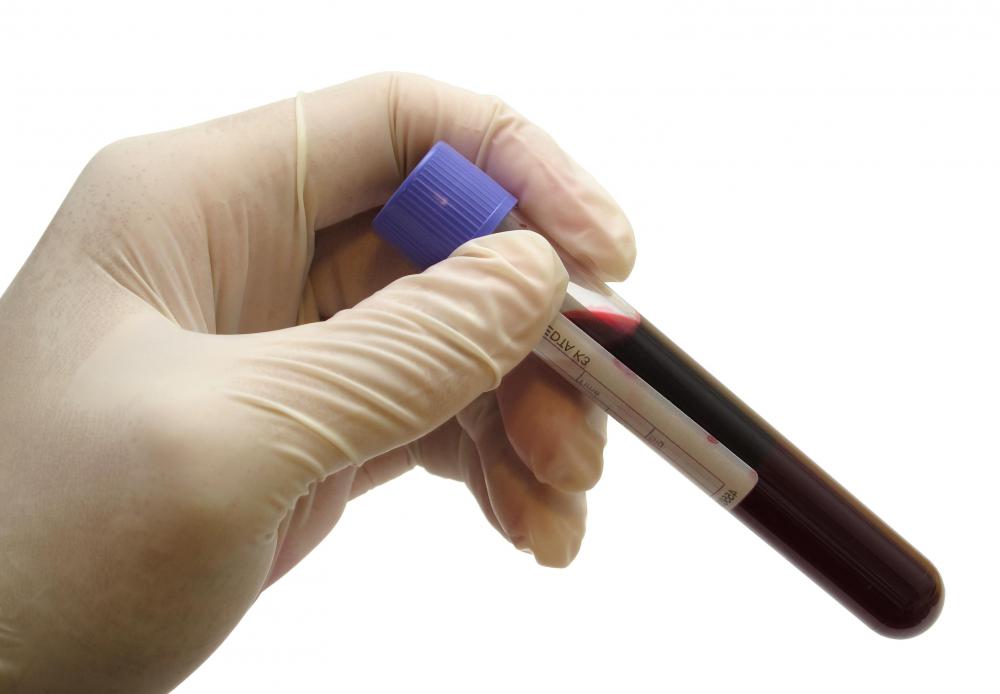At PracticalAdultInsights, we're committed to delivering accurate, trustworthy information. Our expert-authored content is rigorously fact-checked and sourced from credible authorities. Discover how we uphold the highest standards in providing you with reliable knowledge.
What are the Different Phlebotomy Careers?
There are a variety of phlebotomy careers available once someone completes phlebotomy certification. Phlebotomists receive special training and draw blood, either for collection and donation, or for medical testing. There are also several different places where phlebotomists can find employment.
Hospitals are one large employer of phlebotomists. Phlebotomists can do a great deal of work in the hospital setting, performing procedures that were once assigned to the nursing staff. In addition to drawing blood for testing, phlebotomists can administer subcutaneous (under the skin) and intramuscular injections. Having phlebotomists on staff reduces the number of nurses that must work each shift.

Phlebotomy careers in private physicians’ offices are also widely available. These phlebotomists do many of the same tasks that they would do in the hospital setting. The main difference is in the atmosphere. They draw blood for tests, and may give injections as necessary. Often, phlebotomists that work in doctor’s offices are certified medical assistants, which allows them to perform multiple duties that would otherwise be handled by the nursing staff.

Mobile phlebotomy careers are common too. Blood donation is handled by phlebotomists, and most areas have a mobile unit that regularly visits different locations to perform these duties. Mobile blood donation can be a grueling job, as you are performing the same task all day long, every day. Often, the mobile blood banks only visit an area every eight weeks, so lines can be long, and the work steady. Working in a mobile blood bank can be a good career choice for the new phlebotomist, as the rigorous practice will provide excellent experience.

Some phlebotomy careers require specialized training. In normal blood collection, the blood is drawn from a vein, using a process called venipuncture. In some cases, it is necessary to draw the blood from an artery. This is a more complicated procedure, because the blood moving away from the heart, in the arteries, moves with much greater force.
Another type of specialized training that many phlebotomy careers require is working with IV lines. In some states, phlebotomists are permitted to perform saline flushes and dispense Heparin under a physician’s supervision. In states where this is permitted, most employers will expect you to have the training required to perform this procedure.
Phlebotomy careers are often the first step into a more rounded medical career. Many phlebotomists continue their education and earn an Associate degree in clinical laboratory technology. Clinical lab techs not only collect blood for testing or donation, but can also perform other types of sample collections, and prepare them for shipping as well.
AS FEATURED ON:
AS FEATURED ON:













Discuss this Article
Post your comments